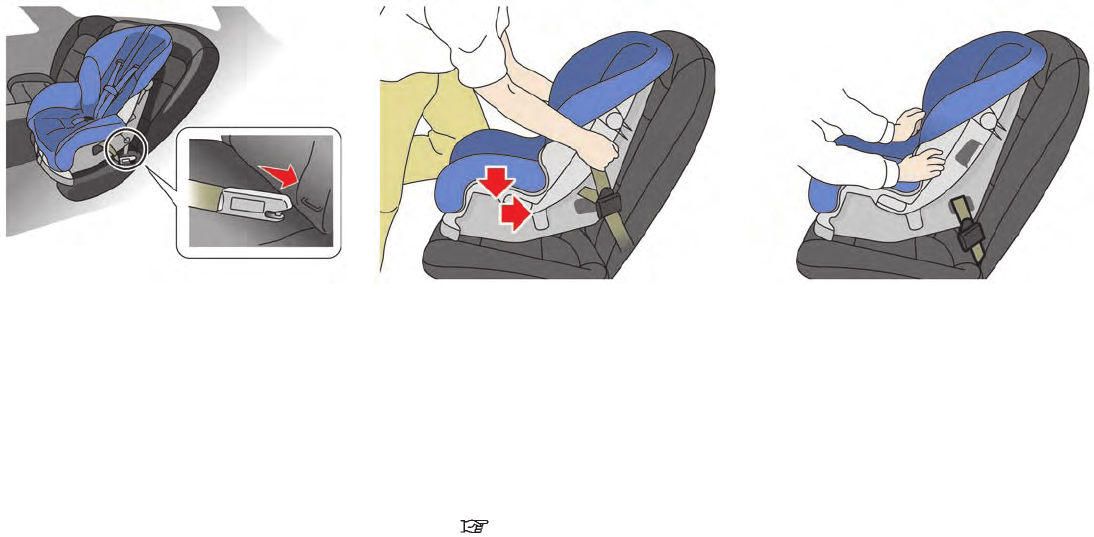
Black plate (53,1)
Model "R35-D" EDITED: 2009/ 3/ 11
Front-facing — step 2
2. Secure the child restraint anchor attach-
ments to the LATCH lower anchors. Check
to make sure the LATCH attachment is
properly attached to the lower anchors.
3. The back of the child restraint should be
secured against the vehicle seatback. If the
seating position does not have an adjustable
head restraint and it is interfering with the
proper child restraint fit, try another seating
position or a different child restraint.
Front-facing — step 4
4. For child restraints that are equipped with
webbing mounted attachments, remove any
additional slack from the anchor attach-
ments. Press downward and rearward firmly
in the center of the child restraint with your
knee to compress the vehicle seat cushion
and seatback while tightening the webbing
of the anchor attachments.
5. If the child restraint is equipped with a top
tether strap, route the top tether strap and
secure the tether strap to the tether anchor
point. (
“TOP TETHER STRAP CHILD
RESTRAINT” page 1-17)
Front-facing — step 6
6. After attaching the child restraint, test it
before you place the child in it. Push it from
side to side while holding the seat near the
LATCH attachment or by the seat belt path.
The child restraint should not move more
than 1 inch (25 mm) from side to side. Try to
tug it forward and check to see if the belt
holds the restraint in place. If the restraint is
not secure, tighten the belt as necessary, or
put the restraint in another seat and test it
again. You may need to try a different child
restraint. Not all child restraints fit in all types
of vehicles.
7. Check to make sure the child restraint is
properly secured prior to each use. If the
child restraint is loose, repeat steps 3
Safety — Seats, seat belts and supplemental restraint system 1-19


















